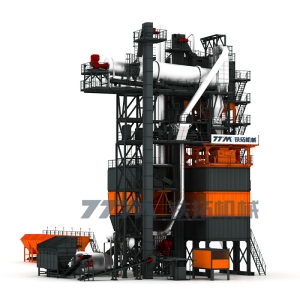
In the ever-evolving landscape of infrastructure development, the need for sustainable practices has become increasingly urgent. One sector that has seen significant progress in this regard is the asphalt industry, specifically through the innovative process of Rap Recycling in Hot Mix Asphalt (HMA) production. This article delves into the intricacies of this eco-friendly technology, its applications, and the potential it holds for global construction markets.
Rap Recycling, shorthand for Reclaimed Asphalt Pavement, refers to the process of reusing removed asphalt surfaces to create new HMA. By incorporating recycled material into the manufacturing process, the industry significantly reduces waste and conserves natural resources. The result is a more sustainable product that maintains the durability and performance expected of modern asphalt mixes.
Bulk wholesale Rap Recycling Hot Mix Asphalt Plants are becoming increasingly popular as more countries and companies prioritize environmental stewardship. These plants are designed to efficiently process large quantities of RAP, transforming what was once considered construction debris into a valuable resource for creating new roads, parking lots, and other paved surfaces.
The benefits of these recycling plants extend beyond environmental considerations. Financially, using RAP can reduce the overall cost of asphalt production by minimizing the need for virgin materials. Additionally, the reduced energy required for recycling compared to producing new asphalt mixtures leads to lower carbon emissions and a smaller carbon footprint.
From a technical standpoint, the incorporation of RAP into HMA requires careful consideration of mix design and optimization to ensure the desired performance characteristics are achieved. Research studies, such as those documented in [1] and [2], have explored the effects of varying RAP percentages on the mechanical properties of the final product. These studies have led to advancements in mix design methods and best practices, enabling the industry to confidently utilize higher percentages of RAP without compromising quality.
International exporters play a crucial role in disseminating this technology across borders, facilitating the adoption of Rap Recycling Hot Mix Asphalt Plants on a global scale. As more nations express interest in sustainable infrastructure solutions, these exporters are poised to make a significant impact on the reduction of waste and the promotion of circular economies within the construction sector.
The integration of Rap Recycling Hot Mix Asphalt Plants into the construction industry represents a monumental step forward in sustainable development. Not only do these plants offer environmental benefits, but they also contribute to economic growth and technological innovation. As we continue to explore ways to minimize our collective environmental impact, the widespread implementation of Rap Recycling Hot Mix Asphalt Plants stands as a testament to the power of ingenuity and collaboration in driving positive change.
With a focus on bulk wholesale options and competitive pricing, these plants are becoming accessible to a growing number of contractors and governments worldwide. It is through such initiatives that we can pave the way for a greener, more sustainable future – quite literally, one road at a time.
